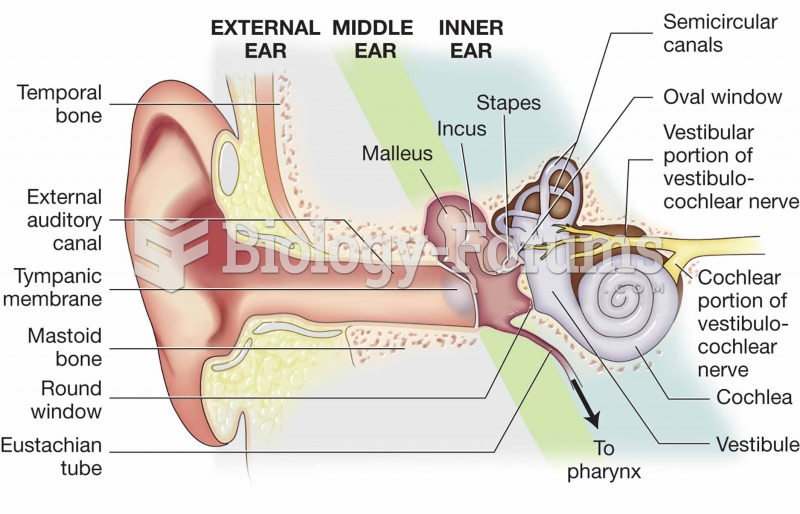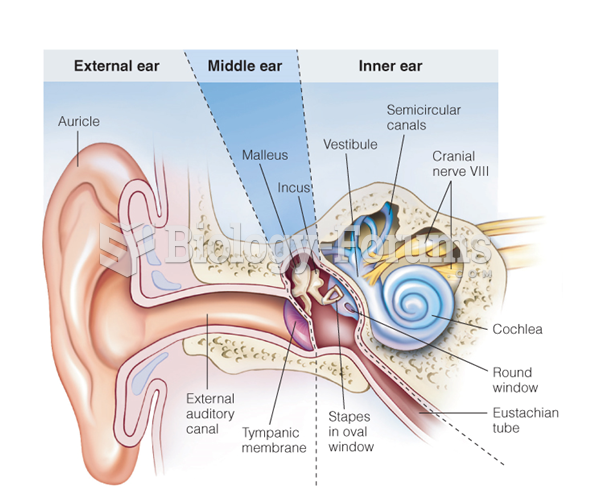|
|
|
All adverse reactions are commonly charted in red ink in the patient's record and usually are noted on the front of the chart. Failure to follow correct documentation procedures may result in malpractice lawsuits.
About 3% of all pregnant women will give birth to twins, which is an increase in rate of nearly 60% since the early 1980s.
If all the neurons in the human body were lined up, they would stretch more than 600 miles.
Despite claims by manufacturers, the supplement known as Ginkgo biloba was shown in a study of more than 3,000 participants to be ineffective in reducing development of dementia and Alzheimer’s disease in older people.
A serious new warning has been established for pregnant women against taking ACE inhibitors during pregnancy. In the study, the risk of major birth defects in children whose mothers took ACE inhibitors during the first trimester was nearly three times higher than in children whose mothers didn't take ACE inhibitors. Physicians can prescribe alternative medications for pregnant women who have symptoms of high blood pressure.
 In acute otitis media, the tympanic membrane is usually bulging and purulent fluid is present in the
In acute otitis media, the tympanic membrane is usually bulging and purulent fluid is present in the
 In 2008, the U.S. economy suffered a gaping wound as several trillion dollars were ripped out of it.
In 2008, the U.S. economy suffered a gaping wound as several trillion dollars were ripped out of it.





